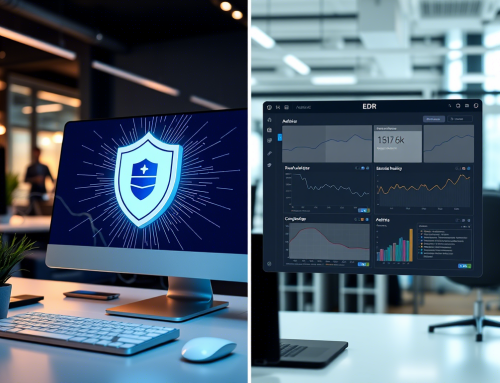The idea of staying anonymous online has become more important than ever. You might think it’s easy to hide your identity on the internet, but it’s actually more complicated than most people believe. Whether you’re trying to protect your privacy or simply reduce your online presence, here’s a beginner-friendly guide to help you stay anonymous on the internet.
What Does Being Anonymous Online Mean?
Being anonymous online means limiting the amount of personal information you share, such as your name, email, location, or any other identifying details. While complete anonymity may be difficult to achieve, it’s possible to take steps that reduce your digital footprint and make it harder for others to track you.
Start With Limiting Personal Information
The first and most important step to staying anonymous is to limit the personal information you share. Avoid using your real name, address, or contact details on social media profiles or websites. For example, create a different username that doesn’t link back to your real identity. You can use different personas or characters for different platforms to avoid being easily identified.
For instance, create a persona for Instagram and another for Twitter, with unique usernames that have no connection to each other or your real identity. This is the first layer of defense when it comes to being anonymous online.
Create Strong, Unique Passwords
Passwords are one of the biggest weak points when it comes to staying anonymous. If you use the same password across multiple accounts, it becomes easy for someone to trace those accounts back to you if one gets hacked. Always use strong, unique passwords for each of your online accounts.
A good tip is to use a password manager to help you store and create complex passwords that are hard to crack. This way, you won’t have to remember them all, and it will significantly improve your anonymity.
Using VPNs for Anonymity
A VPN (Virtual Private Network) is a service that hides your real IP address and encrypts your internet connection, making it harder for anyone to track your online activity. However, be cautious when choosing a VPN service. While VPNs provide some privacy, they are not foolproof. Many VPN services can be forced to hand over data to law enforcement agencies if required.
It’s important to use a reliable VPN provider that doesn’t keep logs of your activities. Even so, remember that VPNs aren’t a perfect solution for staying anonymous online—it’s just one tool in your privacy toolbox.
Exploring TOR for Enhanced Anonymity
If you want to go a step further in hiding your online activity, you can use TOR (The Onion Router). TOR routes your internet connection through several servers around the world, making it extremely difficult to track your IP address. This is a popular tool for those seeking a higher level of anonymity, especially when accessing websites that value privacy.
However, even TOR has its limitations. Law enforcement agencies have been known to set up fake servers, called nodes, to monitor traffic. While TOR is a useful tool, it’s not a guarantee for absolute privacy. It’s best to combine TOR with other privacy measures like VPNs for better protection.
Anonymous Email and Messaging
Many people make the mistake of using their personal email addresses for everything. But to remain anonymous, it’s essential to use anonymous email services. Gmail or Yahoo might seem convenient, but they are not built for privacy. Services like ProtonMail and Guerilla Mail are great alternatives because they don’t require personal information when signing up, and they encrypt your emails.
Similarly, for messaging, avoid apps like WhatsApp if you’re looking for better privacy options. Instead, use secure messaging apps like Signal, which provide end-to-end encryption and don’t store your messages on their servers.
Be Cautious on Social Media
Social media is one of the biggest pitfalls when it comes to anonymity. Even if you use a fake name, the posts, comments, and pictures you share can reveal a lot about your identity. Be mindful of what you post online, and never share sensitive or personal information that could be traced back to you.
If you’re serious about anonymity, consider using multiple social media accounts with different personas. Be careful about the photos you post, as they can contain metadata, such as the location where the picture was taken. To stay anonymous, strip the metadata from your images before uploading them.
Don’t Use Anonymity for Illegal Activities
One key point to remember: anonymity is for protecting your privacy, not for illegal activities. Law enforcement agencies have advanced tools and techniques to uncover your real identity, even when you use tools like VPNs and TOR. Many people have been caught because they thought they were invisible online, only to be traced due to their mistakes.
Anonymity helps you maintain privacy, but it doesn’t give you a free pass to break the law. The best way to stay safe and anonymous is to always operate within legal boundaries.
Use Secure Browsers and Search Engines
If you’re serious about your privacy, you should also use secure browsers and search engines. Mainstream browsers like Chrome or Safari collect and share a lot of information about you. Instead, try privacy-focused browsers like Brave, which offer built-in privacy settings that block trackers and ads.
When it comes to search engines, avoid Google. Instead, try search engines like DuckDuckGo or Startpage, which don’t track your search history or personal information. These tools will help you reduce the amount of data being collected about you while you browse the web.
Anonymity is Possible, But Not Foolproof
Staying anonymous online requires effort and the right tools. While it’s possible to reduce your digital footprint, it’s almost impossible to be completely invisible on the internet. By limiting personal information, using strong passwords, employing VPNs and TOR, and being cautious on social media, you can greatly increase your level of anonymity.





